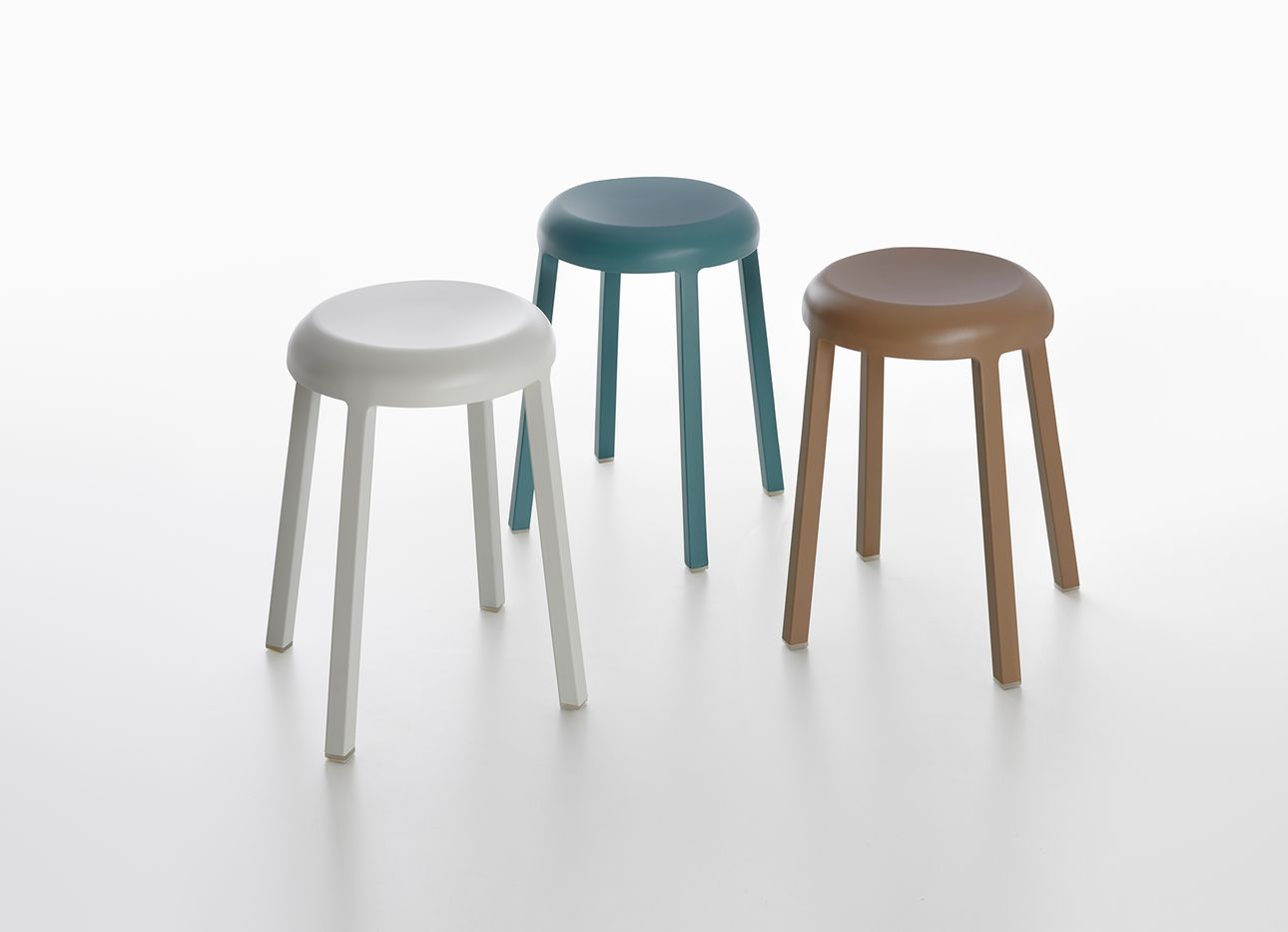
Japanese Designer Naoto Fukasawa’s New Stool Collection Raises the Bar of Sustainability
Because of its ubiquity, it’s tempting to describe Emeco’s iconic Navy Chair, designed in 1944, as basic. But that would belie the sophistication and intention at work. Born at the end of World War II and making the best of the very real constraint of material shortages, the Navy Chair was—and is still—produced in a Pennsylvania factory using recycled scrap aluminum and requiring a hyper-involved, 77-step process of hand-welding. So when the brand approached Naoto Fukasawa to create a new stool in this lineage, the Japanese industrial designer, who established the philosophy of Super Normal in 2006, together with Jasper Morrison, took full advantage of the company’s know-how. “I’m influenced by the handmade and [the level of] craftsmanship in the work, and with Emeco, I was impressed by that,” says Fukasawa, who has designed furniture and objects for B&B Italia, Herman Miller, and Muji, among other companies.
The outcome is the Za stool, available in six colors and three heights, and which has the lowest carbon footprint of any Emeco product to date. (The company’s CEO, Gregg Buchbinder, spoke with us last fall about the Emeco “carbon calculator” on Ep. 81 of At a Distance.) Za—“seat,” in Japanese—keeps in line with the company’s heritage and dedication to sustainability in its truest sense, a value that resonates with Fukasawa. “I strive to design long-lasting products that are used forever, which do not break or [get] thrown away,” he says. “That’s the most sustainable approach.”